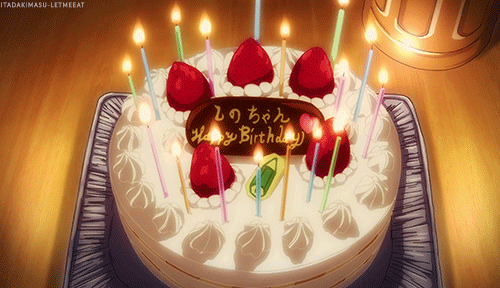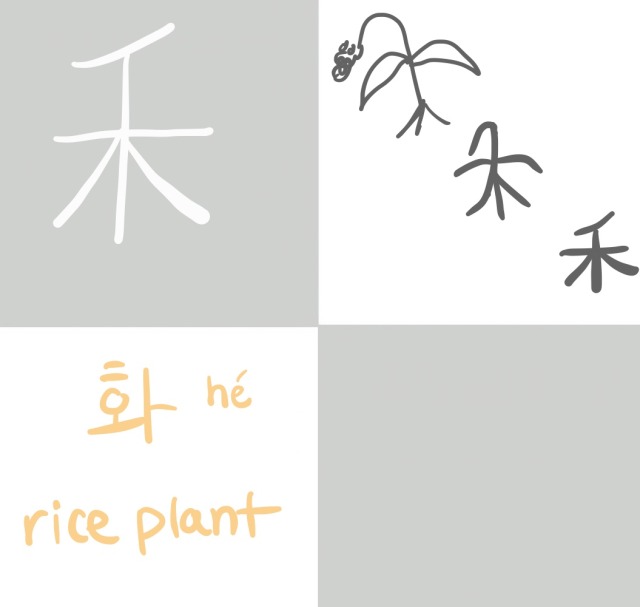#korean vocabulary
오랜만~.~ long time no see
hello everyone! im finally on summer break~ i know i havent been active these past months and i apologize! i hope my posts i did till now could help u still^^ now that i have some free time, im posting this to ask if u guys would like me to comeback and post more like i did before? pls let me know :) thanks for ur follows and likes btw!! im happy people check my account even when im not active :D
asks open
hi feel free to ask me anything concerningkorean or anything else,i’ll do my best to answer and help!
have a good day, night ♥︎︎︎︎


하늘 사진을 되게 잘 찍죠
요즘 사진을 안찍어서 이건 오랜만 사진이에요
해가 질 때 하늘이 제일 이쁜것 같아요
하늘색이랑 구름도 다 잘 보여서 너무 좋아요~
하늘 사진을 찍을때마다 다른 느낌을 나와요
그런 사진은 미술 그림이랑 비슷한다고 생각해요
그리고 사진 보면 꽤 따뜻한 느낌이당
learn korean : the cute way
⚠️ make sure u know basic grammar rules enough before going through this post ⚠️
1. add “ㅇ”
~다 ➞ 당
~아요/어요/여요 ➞ 아용/어용/여용
~해요 ➞ 해용
~이에요/예요 ➞ 이에용/예용
~인데/ㄴ데 ➞ 인뎅/ㄴ뎅
~야지 ➞ 야징
~세요 ➞ 세용
2. replace ~요 by ~여
~아요/어요 ➞ 아여/어여
~해요 ➞ 해여
~세요 ➞ 세여
3. replace ~(하)고 by ~(하)구
밥을 먹고 자요 (eat and sleep)
➞ 밥을 먹구 자요
일어나고 학교에 가요 (get up and go to school)
➞ 일어나구 학교에 가요
4. add “ㅁ”
~야 ➞ 얌 ~요 ➞ 욤
~면 ➞ 음 ~아 ➞ 암
~어 ➞ 엄 ~해 ➞ 함
~이에요/예요 ➞ 임
examples :
아니야 ➞ 아니얌
했어요 ➞ 했어욤
뭐해? ➞ 뭐함?
알았어 ➞ 알았엄
괜찮아 ➞ 괜찬암
없으면 ➞ 없음
학생이에요 ➞ 학생임
5.some more “cute” changes :
사랑해요 ➞ 사룽해(용)
안녕하세요 ➞ 안녕하새용, 안냐세용
안녕 ➞ 아뇽
왜 ➞ 왱
뭐 ➞ 뭥
싫어 ➞ 시렁
없어 ➞ 없떠
있어 ➞ 있떠


How to say different countries! Where are you all from? ☺️

After a VERY long hiatus (sorry y’all) I bring you- phrases to learn before visiting Korea!!
As usual, image does NOT belong to me ☺️

Now that we’re all waiting for spring to come!!

Learn Korean with Wave by Ateez
여기 - Here
지금 - Now
파도 - Wave
함께 - Together
건배 건배 - Cheers (a toast)
태양 - Sun
생각하다 - To think
벌써 - Already
기억하다 - To remember
시간 - Time
더 - More
섬 - Island
찾다 - To find
바다 - Sea
각정하지 마 - Don’t worry

Fancy - Twice
지금 하늘 구름 색은 tropical yeah
저 태양 빨간빛 네 두 불 같애
Oh tell me I’m the only one babe
I fancy you,I fancy you,I fancy you
It’s dangerous 따끔해 넌 장미 같아
괜찮아 조금도 난 겁나지 않아
더 세게 꼭 잡아 take my hand
좀 위험할 거야 더 위험할 거야 baby
달콤한 초콜릿 아이스크림처럼
녹아버리는 지금 내 기분 so lovely
깜깜한 우주 숙 가장 반짝이는
저 별 저 별 그 옆에 큰 네 별
———————————————————————————————————————
지금 - Now
하늘 - Sky
구름 - Cloud
빨간 - Red
태양 - Sun
볼 - Cheek
장미 - Rose
달큰하다 - To taste sweet
초콜릿- Chocolate
아이스크림- Ice cream
기분 - Felling/Mood
우주 - Space/Universe
반짝이다 - To glitter/Sparkle/Twinkle
저 - That
큰 - Big
별 - Star
Birthday Vocabulary

Birthday- 생일
Happy Birthday - 생일 축하해요
Party- 파티
Balloons-풍선
Cake- 케이크
Candle- 양초
Birthday card- 생일 카드
Present- 선물
When is your birthday?- 생일이 언제예요
How old are you?- 몇 살이에요?
Since a long while ago, let’s say thousands years ago, people have used Chinese letters in Korea. Presently Chinese letters are not being used in Korean but still the meanings are remain. By the reason understanding Korean with some Chinese might help you to learn Korean quickly, even help you to deduce unknown words you have never heard.
Words with “관(館) - House”
박물관 - Museum
대사관 - Embassy
백악관 - White house
도서관 - Library
기념관 - Memorials
여관 - Inn=
영화관 - Theater
체육관 - Gym
개관 - The opening of, open (Library, Mesuem, etc.)
폐관 - The closing of, close (Library, Mesuem, etc.)
Since a long while ago, let’s say thousands years ago, people have used Chinese letters in Korea. Presently Chinese letters are not being used in Korean but still the meanings are remain. By the reason understanding Korean with some Chinese might help you to learn Korean quickly, even help you to deduce unknown words you have never heard.
Words with “식(食) - learn”
음식 ( Drink / Eat ) - Foods
음식물 ( Drink / Eat / Things ) - foods generally
음식점 ( Drink / Eat / Store) - Restaurant (식당 is commonly used. Basically same meaning)
식당 ( Eat / House ) - Restaurant
식량 ( Eat / Foods) - food; provisions
식품 ( Eat / stuff ) - Things can be consumed
단식 ( Quit / Eat ) - Fast , abstain from foods (usually be done to show against opinion on protest)
식사 ( Eat / Do ) - have a meal
식탁 ( Eat / High ) - Dining table
간식 ( Between / Eat ) - Snack
식물 ( Eat / things) - Plant
식구 ( Eat / Mouse ) - Family (Nearly same meaning of family. Basic meaning is people who have meals together)
외식 (Outside / Eat) - Eat out
식욕 ( Eat / Desire ) - Appetite
한식 ( Korean / Eat ) - Korean foods
양식 ( Western / Eat ) - Western foods
일식 ( Japanese / Eat ) - Japanese foods
중식 ( Chinese / Eat ) - Chinese foods
Since a long while ago, let’s say thousands years ago, people have used Chinese letters in Korea. Presently Chinese letters are not being used in Korean but still the meanings are remain. By the reason understanding Korean with some Chinese might help you to learn Korean quickly, even help you to deduce unknown words you have never heard.
Words with “학(學) - learn”
학교 (Learn / school) - School
대학 (Big / Learn) - University
학생 (Learn / alive thing)- Student
방학 (Prevent / Learn) - Vacation
입학 (Enter / Learn) - enroll school / university
퇴학 (retreat / Learn) - Expel from school
학습 (Learn / Learn by experience) - Effort to acquire knowledge
학자 (Learn / person) - Scholar
학부모 (Learn / Parents) - Parents of a student
장학금 (award / learn / Gold) - Scholarship
유학 (Stay / Learn) - Study abroad
학문 (Learn / Ask) - Academia
수학 ( Count / Learn) - Mathmatics
과학 ( Subject / Learn) - Science
철학 (Bright / Learn) - Philosophy

Days in Korean are a combination with a Chinese letter and “요일”
Monday : 월요일 / 月 (Moon)
Tuesday : 화요일 / 火 (Fire)
Wednesday : 수요일 / 水 (Water)
Thursday : 목요일 / 木 (Tree)
Friday : 금요일 / 金 (Metal)
Saturday : 토요일 / 土 (Ground)
Sunday : 일요일 /日 (Sun)
It is easier to say months in Korea.
월 (月) means a month and there are 12 months in a year.
They are called from 1st month to 12th month.
January : 1월
February : 2월
March : 3월
April : 4월
May : 5월
June : 6월
July : 7월
August : 8월
September : 9월
October : 10월
November : 11월
December : 12월
Korean grammar “입니다, 합니다, 습니다” as “-ㅂ니다”
Basic grammar must know

"-ㅂ니다" shows the present tense (I read, I eat, I go, etc.) or daily actions (I go to Church, I go to school, etc.) .
Basically there are three types of verbs in Korean.
First, “-입니다” from -이다(infinitive) means “is”
Second, “-합니다” from -하다(infinitive) means “do”
the last but not least irregular forms. “가다”, “먹다”, “자다” etc. are the last case.
“-입니다” is corresponding to “is” in English.
“이다” (is) + “ㅂ니다” becomes “-입니다”
For example;
- This is a pen = 이것은 펜입니다.
- I am at cafe = 나는 카페입니다.
“-합니다” is used for verbs ending with “-하다
"Verb ”-하다" is the most common form of verbs in Korean.
These verbs are consist of Noun and “-하다”.
For example,
- "공부하다" is made up by “공부(Study)” and “-하다”.
- “낙서하다” is made up by “낙서(Doodle)” and “-하다”.
These verbs have a distinction comparing to other verbs, which the noun on the verb can change to Object with “-을/를”.
For example,
- “공부하다” can change to “공부를 하다”.
- “낙서하다” also can be written in “낙서를 하다”.
The irregular form to use “-ㅂ니다” is depending on the last letter of the verb.
- End with vowel (There is no consonant on the bottom)
- “가다(Go)” + “-ㅂ니다” becomes “갑니다.”
- “자다(Sleep)” + “-ㅂ니다” becomes “잡니다.”
2. End with the consonant “ㄹ” -Omit “ㄹ” and apply the first rule, +“-ㅂ니다”
- “갈다(Change/Grind)” + “-ㅂ니다” becomes “갑니다.” - As you notice, it is the same form with “가다 + -ㅂ니다”.
- “말다(Roll up)” + “-ㅂ니다” becomes “맙니다.”
3. End with a consonant besides “ㄹ” - add “-습니다”
- “걷다(Walk)” +“-습니다” becomes “걷습니다.”
- “입다(Wear) + ”-습니다" becomes “입습니다.”
There is a worksheet on studywithjun.com
I appreciate your effort on study today, and hope you guys have a good day !



고양이 (Cat)
말 (Horse)
망아지 (Baby Horse - foal)
토끼 (Rabbit)
There is a funny expression on 망아지, 고삐 풀린 망아지. A person who get excited energitically because of out of regulation does whatever they want in a bad way called so.
고양이 집사 means caregiver or cat servant. It is funny people express themselves a dog`s friend and Cat’s servant.
Must-know words in Korean for grammar
문법 ( Grammar )
주어 ( Subject )
목적어 ( Object )
동사 ( Verb )
명사 ( Noun )
형용사 (Adjective )
부사 ( Adverb )
자음 ( Consonant )
모음 ( Vowel )
구 ( Phrase )
어절 ( Clause )
조사 ( Postposition ) - Which does not exist in English but core in Korean

눈 (Eyes)
- 눈두덩 (Upper part of eyelid)
- 쌍꺼풀 (Double eyelid)
- 속눈썹 (Eyelash)
- 홍채 (Iris)
- 동공 (Pupil)
- 아래 속눈썹 (bottom lid)

character story:
When you take a grain ‘ of rice from the heavy 禾 화 rice seedling, it will spring back to shape and you will have 米 미 rice to eat.
This is a radical.
Study vocab here!
*can add 하다 to make a verb form
Vocab:
米色 미색 pale yellow
白米 백미 white rice
一般米 일반미 normal rice
政府米 정부미 state held rice
玄米 현미 brown rice

character story:
This character simply mimics the shape of a heavy headed rice seedling, as seen in the picture above! When the rice would start growing, the poor stem would droop (unlike the rice being feasted upon in harvest moon…)

This is a radical.
